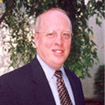Commentary on 2 Corinthians 3:12—4:2
This week, more than usual in the lectionary, all the lessons have obvious interconnections.
This particular lesson joins the others in establishing the context of ministry — our ministries, our congregations’ ministries, Christ’s ministry — within the overarching story of God’s saving action on behalf of all people. It speaks of Moses, of Christ, of the larger history of the people of God –for better and for worse. Our stories — our ministries — are preceded by and rooted in past actions of God and, at their best, are moving toward the future that God has in store for us and for the whole creation.
The passage begins by referring to ideas that have just been stated in the letter: our ministry flows out of “the ministry of the Spirit” (2 Corinthians 3:8) and is a “ministry of justification” (3:9, being made right or, perhaps better stated, becoming increasingly aligned with the ways of God). When our actions align with the leading of the Spirit and the ways of God, God’s glory becomes visible; the ways of God become embodied in us and what we do. And, when our actions embody the ways of God, whether it seems apparent or not at the time, that has lasting impact (3:10-11) — in the Gospel of John’s words, becomes a light that shines unconquerably in the darkness.
On that basis, this pericope proclaims, we have reason to act with hope and boldness. Not timidly, not reluctantly, not with anxiety over how outsiders (or even insiders) might perceive, understand, or oppose our ministries. Not shrinking back from uncertainty over our future or the future of our congregation or denomination, but boldly placing the life and future of our ministries in the hands of the God who assures that their impacts will endure.
While charting that course, it’s important to remember that in this letter (and others), when Paul speaks about the limitations of “the Jews” or “the people of Israel,” he’s generally not contrasting the Christian faith and the Jewish faith. Generally, since there wasn’t even a firmly established concept of “Judaism” as opposed to “Christianity,” these remarks referred to different groups within the body of Christ. Some believers clung more rigorously to traditional Jewish practices as part of their discipleship and others (including Paul) saw themselves as being made free to move in new directions with new practices (“… where the Spirit of the Lord is, there is freedom,” 3:17).
This is important because over the centuries the church has tended to see verses like these as indicating how much better Christianity is than Judaism. As if only “the Jews” or “the people of Israel” have ever looked at the ways of God from behind a blurring, protective veil. As if these words don’t describe a tendency commonly found among people of all faiths, including Christians. Unfortunately, the NRSV reinforces that tendency in how it punctuates 2 Corinthians 3:18. As translated, it comes across as “all of us, since we as Christians have had the veil removed, see the glory of the Lord and are being transformed — unlike those followers of Moses.”
The Greek, however, lacks that kind of “clarifying” punctuation (not just here, but throughout the New Testament). It could equally or even more likely be translated as something like “all of us who follow Christ and who have actually had the veil removed see the glory of the Lord and are being transformed — unlike those followers of Christ who still look from behind a veil.”
If we are to respond to scripture as if it is living scripture, a word of God active today, it’s helpful to see it speaking not only of the good, the bad, and the ugly of people back in the first century. First century believers were no more and no less likely than we are to stand on a continuum of spiritual growth ranging from limited, stunted, and resistant to hearing a new word from God to expansive, vital openness to the Spirit’s leading. Paul can speak to us as well as he spoke to them because we exhibit the same tensions, disparities of insight, and conflicts that they did. And, we have the same potential as the community at Corinth to be open to a still more excellent way.
Looking at the world from behind a veil of fear and timidity rather than discerning possibilities based on hope and boldness leads many of us and our communities to shrink away from God’s call. If one looks back over a year, five years, ten years in one’s life or the life of a community or denomination, can one see signs of being “transformed into the same image [of the Lord] from one degree of glory to another” (2 Corinthians 3:18)? Even if we account for our propensity for sin and error, which holds us back from transformation, can we see something that at least shades over into a new degree of glory, of transformation, of vitality that finds its source in the ways of God and the leading of the Spirit?
We continually have to take care not to overestimate the level of our own righteousness. But at the same time, Paul encourages us to recognize that we can and sometimes do grow in faith, hope, and love. Those changes in our actions on behalf of others are to be celebrated, to serve as building blocks for more growth and more transformation, from glory to glory. It’s not often simple to see that in any given board meeting, committee meeting, planning group, or moment of ministry. But it’s often there, and we ourselves are the ones resisting the removal of the veil, clinging to what is comfortable, to what we already know, shielding our own eyes from the glory.
Paul reminds us, “… when one turns to the Lord, the veil is removed. Now the Lord is the Spirit, and where the Spirit of the Lord is, there is freedom (2 Corinthians 3:16-17).” The freedom, the kingdom, the power, and the glory all wait for us to reach for and be changed.


March 3, 2019